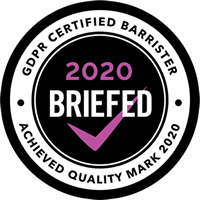
LEHMAN BROTHERS: INTERPRETATION OF THE PRINCIPLE IN RE CONDON, EX PARTE JAMES
10th December 2018
Lehman Brothers Australia Ltd (in liquidation) v Lomas & Ors, the Joint Administrators of Lehman Brothers International (Europe) (in administration)[2018] EWHC 2783 (Ch) (Hildyard J, 24.10.18)
The facts
In simple terms, Lehman Brothers Australia Ltd (in liquidation) (“LBA”) claimed in the English administration of Lehman Bros International (Europe) (“LBIE”) for the net balance of sums due from LBIE to LBA as an unsecured net creditor of LBIE (judgment, paragraph [2]). LBA submitted a proof in LBIE’s administration ([8]); and the sum agreed to be due from LBIE to LBA was thereafter recorded in a contractually binding “Claims Determination Deed” (“CDD”) ([3], [23] and [35]). The CDD contained extensive releases ([24]), which in terms precluded or extinguished any greater claim by LBA than was recorded in the CDD.
However, the sum stated for LBA’s claims in the CDD was erroneous and too low, having been calculated and converted in an incorrect currency (Australian Dollars, rather than Euros). The error did not come to light until discovered by a prospective assignee of LBA’s claim against LBIE following an auction process ([4], [27] and [28]). It was accepted by the Joint Administrators of LBIE (“the Joint Administrators”) that there had been an error in the calculation of LBA’s claim, which: was the product of a simple arithmetic miscalculation; produced too low a value for LBA’s claim ([4] and [29]); was “innocently made“; and was “entirely understandable in the circumstances of LBIE’s administration“([31]).
LBA requested the Joint Administrators to vary the amount of LBA’s approved claim to reflect the correct figure due to LBA, but the Joint Administrators refused to do so, relying on the CDD and the release provisions which it contained ([33] and [34]). Accordingly, LBA applied for a direction under the principle in ex p James, alternatively under paragraph 74 of Schedule B1 IA 1986, requiring the Joint Administrators to accept LBA’s claim in the admitted, correct, higher amount than was stated in the CDD. The Joint Administrators resisted LBA’s application for such a direction, principally on the basis of the releases in the CDD ([34]).
The issues
The principal issue decided by Hildyard J was as to the ambit of the principle in ex p James and, in particular, the proper test to be applied for the power of the court to intervene under that principle. This included consideration of whether, and in what so circumstances, the court may direct its officers not to enforce contractual commitments freely entered into by them with creditors, but on an erroneous basis ([5]). That question also arose in the application of paragraph 74 of Schedule B1 IA 1986.
Recent authority indicated that the “touchstone or test” to be applied for the court’s intervention in the actions of its officers under the principle in ex p James was one of “unfairness“, i.e. whether it would be “unfair” for the officer of the court to take full advantage of legal rights: see, for example, Re Clark (a Bankrupt) [1972] 1 WLR 559, per Walton J at 563; followed by David Richards J (as he then was) in another Lehman Brothers case in Re LBIE (Waterfall IIB) [2015] BPIR 1162 (“Waterfall IIB“) at [183]; which was cited “with apparent approval” in the Supreme Court in Re Nortel GmbH [2014] AC 209, per Lord Neuberger at [122]; and Re Young (unreported, 27 March 2017).
However, Hildyard J held that:
(1) The decisions in Waterfall IIB and Re Nortel were obiter, not binding on him and distinguishable ([49], [50], [69] and [81]). Instead, Hildyard J that the correct test, mandated by the earlier Court of Appeal decisions in Re Wigzell [1921] 2 KB 835 and Re T.H. Knitwear (Wholesale) Ltd [1988] Ch 275, and Hildyard J’s own decision in Heis v Financial Services Compensation Scheme Ltd [2018] EWHC 1372 (Ch), was “a stricter unconscionability test” ([70]) and a “stricter test” ([81]) (see also [52]). (This was notwithstanding that both Re Wigzell and Re T.H. Knitwear (Wholesale) Ltd had been cited by Lord Neuberger in Re Nortel at [122] and by David Richards J in Waterfall IIB at [176], [177] and [181] in their adoption of the “unfairness” test.)
(2) The test of “unfairness” identified in Re Clark, Re Nortel and Waterfall IIB was not synonymous with a test of “contrary to natural justice” or “not high-minded” and “dishonourable” ([61](1) and (2)). In favouring “unfairness” as the test over “contrary to natural justice” or “not high-minded” and “dishonourable“, Walton J in Re Clark and David Richards J in Waterfall IIB departed from Court of Appeal authority (i.e. Re Wigzell and Re T.H. Knitwear (Wholesale) Ltd), which was binding on them both ([61](2)).
(3) The test which emerged from those Court of Appeal authorities was not “unfairness“, but whether what is proposed, would be “pronounced to be obviously unjust by all right-minded men” ([61](4)).
(4) The exercise of legal rights vested by statute in an office-holder (being officer of the court) may be prevented or controlled where that exercise would be contrary to natural justice; but that is very different from restricting the exercise of legal rights and obligations conferred or imposed by contract to alter the parties’ bargain by reference to “fairness” ([61] (6)).
(5) Occasions when recourse to the principle in ex p James to restrict the exercise of legal rights on the stricter test set out in (3) above would be possible “are few and far between and in my view probably confined to circumstances where any honest man would disclaim any such right or consider it dishonourable to assert it, but there is a gap in the law and the law itself provides no recourse against its assertion“([61](7)).
(6) As a corollary, where the law itself provides a remedy or recourse, it was difficult to see any room for a “free-ranging alternative jurisdiction” (i.e. by a wide interpretation of the principle in ex p James) ([61[8]).
(7) “In point of principle, there is no reason or justification for not giving effect to contractual obligations freely entered into, unless under the existing law the contract can and should be reformed or rectified or otherwise invalidated” ([84]). In the present case, Hildyard J considered that the principle in ex p James could not be invoked to restrict the exercise of contractual rights unless the contract in question was liable to be rectified. Hildyard J described this conclusion as “rectification or bust“.
(8) Even if (contrary to his view) the principle in ex p James or paragraph 74 of Schedule B1 IA 1986 enabled the court to override a contractual commitment on the ground of “unfairness“, Hildyard J would not have considered it right, as a matter of discretion, to exercise its jurisdiction in favour of LBA, having regard to the purpose of the CDD, its terms (in particular the releases contained in it) and the finality intended by it ([85]).
Practical implications of the judgment
1. The judgment gives a restricted interpretation of the principle in Re Condon, ex p James (1874) 9 Ch App 609, and thereby limits the circumstances in which the court can intervene to control or restrict the conduct of its officers (i.e. officers of the court, such as liquidators in a compulsory liquidation and administrators appointed by the court).
2. The judgment also gives a restrictive interpretation of the power of the court under paragraph 74 of Schedule B1 to the Insolvency Act 1986 to grant relief where “(a) the administrator is acting or has acted so as to unfairly harm the interests of the applicant… or (b) the administrator proposes to act in a way which would unfairly harm interests of the applicant…”).
3. The judgment is likely to make it more difficult for a person (such as a creditor) who is dissatisfied by a decision or the conduct of an officer of the court to challenge such decision or conduct under the principle in ex p James, which is circumscribed in its application.
4. Accordingly, office-holders appointed by the court may consider that their conduct is now less at risk of a challenge under the principle in ex p James than it was under the state of the authorities prior to Hildyard J’s judgment; and those who are dissatisfied by a decision or the conduct of the officer of the court may be less willing to challenge such decisions or conduct by applying to the court under the principle in ex p James for a direction to be given to the office-holder to reverse, vary or otherwise control the conduct of such officer.
5. That is particularly so where the office-holder appointed by the court relies on contractual rights and obligations freely entered into and the law of contract does not allow the contract to be “reformed or rectified or otherwise invalidated“.
Philip Gillyon (appearing for the Applicant)



